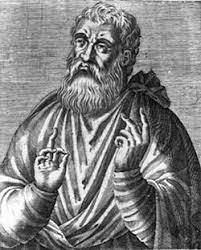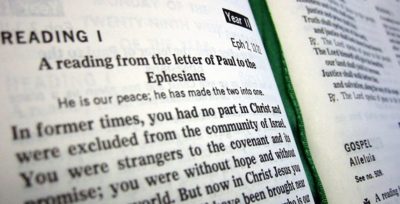Justin Martyr (100 – 175AD). hen Justin was arrested for his faith in Rome, the prefect asked him to denounce his faith by making a sacrifice to the gods. Justin replied, “No one who is rightly minded turns from true belief to false.”. It was in one sense an easy answer for Justin because he had spent most of his adult life discerning the true from the false. Justin was born in the Roman city of Flavia Neapolis (ancient Shechem in Samaria). Raised by pagan parents, he sought to find life’s meaning in the philosophies of his day. This only brought a series of disappointments. His first teacher was a Stoic who “knew nothing of God and did not even think knowledge of him to be necessary.” There followed a Peripatetic (itinerant philosopher), who seemed most interested in getting his fees. Then came a Pythagorean, but his required course of music, astronomy, and geometry seemed far too slow. Finally, Platonism, though intellectually demanding, proved unfulfilling for Justin’s hungry heart.
At last, about A.D. 130, after a conversation with an old man, his life was transformed: “A fire was suddenly kindled in my soul. I fell in love with the prophets and these men who had loved Christ; I reflected on all their words and found that this philosophy alone was true and profitable. That is how and why I became a philosopher. And I wish that everyone felt the same way that I do.”
Justin continued to wear his philosopher’s cloak, seeking to reconcile faith and reason. His teaching ministry took him first to Ephesus (c. 132), where he held a disputation with Trypho, a Jew, about the true interpretation of Scripture. The Dialogue with Trypho teaches three main points: the Old Covenant is passing away to make place for the New; the Logos is the God of the Old Testament; and the Gentiles are the new Israel.
Later Justin moved to Rome, founded a Christian school, and wrote two bold apologies (i.e., defenses—from the Greek apologia). Justin’s First Apology, addressed to Emperor Antoninus Pius, was published in 155 and attempted to explain the faith. Christianity was not a threat to the state, he asserted, and should be treated as a legal religion. He wrote “on behalf of men of every nation who are unjustly hated and reviled.”
Justin argued that Christians are, in fact, the emperor’s “best helpers and allies in securing good order, convinced as we are that no wicked man … can be hidden from God, and that everyone goes to eternal punishment or salvation in accordance with the character of his actions.” He further showed that Christianity is superior to paganism, that Christ is prophecy fulfilled, and that paganism is actually a poor imitation of the true religion.
A picture of worship: However, this apology has gained the most attention for modern readers because in it Justin records detailed descriptions of early Christian worship (to show unbelievers that Christianity was not subversive). The most famous passage is this:
On the day called Sunday there is a gathering together in the same place of all who live in a given city or rural district. The memoirs of the apostles or the writings of the prophets are read, as long as time permits. Then when the reader ceases, the president in a discourse admonishes and urges the imitation of these good things. Next we all rise together and send up prayers.
When we cease from our prayer, bread is presented and wine and water. The president in the same manner sends up prayers and thanksgivings, according to his ability, and the people sing out their assent, saying the ‘Amen.’ A distribution and participation of the elements for which thanks have been given is made to each person, and to those who are not present they are sent by the deacons.
Those who have means and are willing, each according to his own choice, gives what he wills, and what is collected is deposited with the president. He provides for the orphans and widows, those who are in need on account of sickness or some other cause, those who are in bonds, strangers who are sojourning, and in a word he becomes the protector of all who are in need.
Justin’s Second Apology was written soon after Marcus Aurelius became emperor in 161. In these writings, Justin tried to show that the Christian faith alone was truly rational. He taught that the Logos (Word) became incarnate to teach humanity truth and to redeem people from the power of the demons.
Four years later, Justin and his disciples were arrested for their faith. When the prefect threatened them with death, Justin said, “If we are punished for the sake of our Lord Jesus Christ, we hope to be saved.” They were taken out and beheaded. Since he gave his life for the “true philosophy,” Justin has been surnamed Martyr. Info source: article from Christianity Today






